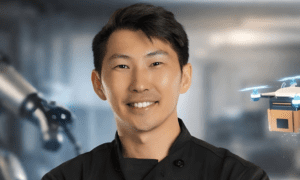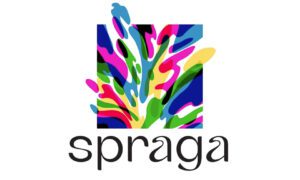There is more attention being placed on food allergens than ever before. According to Food Allergy Research & Education, 200,000 Americans require emergency medical treatment for allergic reactions to food each year. At the same time, the Centers for Disease Control & Prevention report that the prevalence of children suffering from food allergies jumped by 50% between 1997 and 2011.
What are food allergies?
Food allergies can be troublesome at best and life-threatening at worst. The most common food allergens include (but are not limited to) peanuts, tree nuts, eggs, shellfish, dairy, soy, and gluten. These and other food allergens can trigger an immediate reaction from the immune system, leading to symptoms such as itchy hives, vomiting, swelling of the face, eyes, lips, and tongue, and even difficulty breathing, known as anaphylaxis.
In an age where vast amounts of processed food are consumed, it can be challenging for those affected by food allergies to stay safe, as many foods contain various ingredients. In addition, some foods are manufactured using equipment that also produces foods containing allergens, and cross-contamination can strike down those with sensitive enough allergies.
‘It’s far more difficult than it should be for vulnerable people to find truly clean-label, delicious, affordable food. Food allergies can be severe, and those affected need food they can trust. When venturing away from trustworthy allergy-free foods like Safe + Fair’s, it’s a good idea to use the available technology to be sure that it’s safe to eat,’ says Jess Grelle, SVP of Innovation at leading plant-based food company, Safe + Fair.
Top food allergy-combating tech
In addition to opting for reputable, allergen-safe foods, food allergy sufferers can rely on the latest technologies to help ensure the food they consume is safe and allergen-free. Here are some of the standout options in food allergy tech.
AllerPal
In addition to tech that tests for allergens in food, better solutions are needed to support the caregivers of children with allergies and, in turn, provide peace of mind for their worried parents.
AllerPal is an app that helps families efficiently provide important allergy information and emergency treatment plans for their children to whoever is caring for them. According to Elizabeth Luce, creator of AllerPal, the platform allows caregivers to access an action plan detailing the allergic reaction symptoms to look out for, how to treat the reaction, and who they should call. Vital information to caregivers and family members is easily accessible by an app on both Google Play and iOS.
Aibi
This anaphylaxis prevention system is designed for children and includes an easier-to-use, portable epinephrine auto-injector and a wearable device to help detect allergic reactions sooner.
The Aibi wearables come in colorful, kid-friendly designs and use light-sensitive photodiodes to constantly track allergic reactions by measuring histamine levels. These wearables are then paired with a mobile-based alert system that tracks device locations, notify others of a reaction, and delegate tasks to caregivers based on their proximity to the child.
Allergy Amulet
This two-piece kit offers a handy way to test for allergens on the go, with the reader designed to be worn as a bracelet, necklace, watch, or keyring. Users then carry disposable tester strips that they can insert into food or liquids to test for any presence of peanuts. Allergy Amulet plans to add other common allergy triggers in the future.
Nima
This company’s tech focuses on detecting gluten in food samples – within two minutes, you will know whether your food contains gluten, which is particularly helpful given that most outlets advertise gluten-free items as ‘low gluten’ due to the potential for contamination.
Time Magazine named the Nima Gluten-Sensor one of the best inventions in 2015. According to its users, based on thousands of restaurant visits, on average, one of every three foods advertised as gluten-free contains gluten.
TellSpec
By combining bioinformatics, near-infrared spectroscopy (NIRS), and learning algorithms, TellSpec offers a revolutionary tech for analyzing food at a molecular level. The Canadian company’s mission is to help bring about a clean food revolution by empowering consumers with information about that food that goes above and beyond the label. TellSpec offers portable spectroscopic devices in combination with an AI-based platform for rapid analysis of food and liquid samples and other specimens like soil and medical specimens.
Summing up
Food allergies can cause severe and sometimes life-threatening medical conditions when not managed correctly. As much as it would be wonderful to rely on the label advice of the food products we consume, food allergy sufferers cannot afford that luxury, particularly given the possibility that cross-contamination could be sufficient to cause a reaction.
Thankfully, some technologies continue to be developed to combat this issue, including detection devices and management platforms to optimize the medical response to potentially acute situations.



































